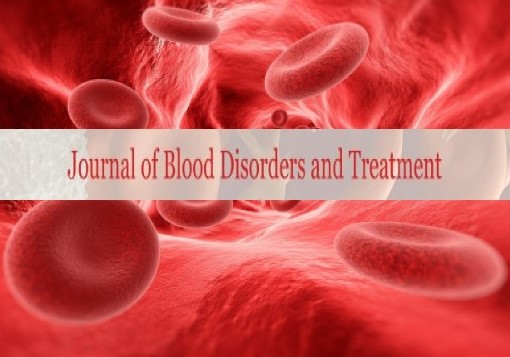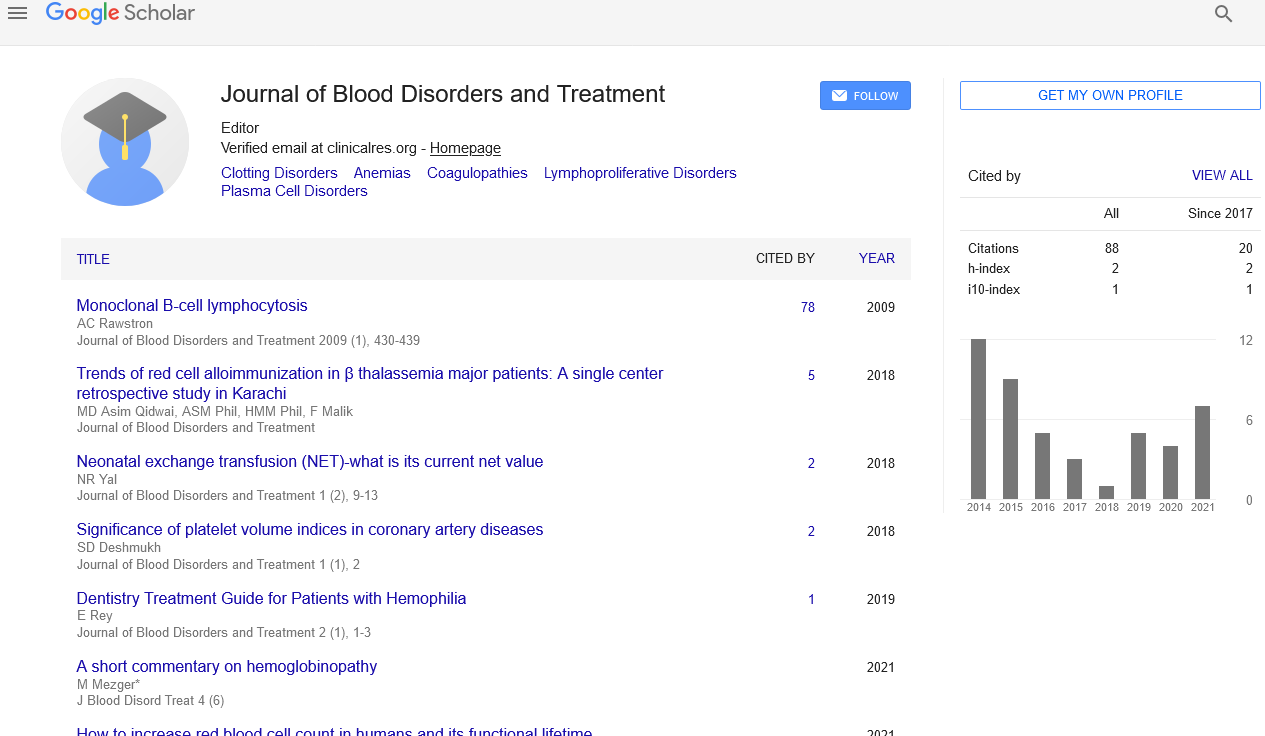
Sign up for email alert when new content gets added: Sign up
Abstract
Challenges of Hematopoietic Stem Cell Transplantation in the COVID-19 pandemic situation, in low income settings BMT Center, CMH Dhaka, Bangladesh
Author(s): Md Mostafil Karim*, Md Mizanur Rahman, Abul Kashem khan and Shahina AkhterBackground: Coronavirus disease 2019 (COVID-19) is a contagious disease caused by a virus, the Severe Acute Respiratory Syndrome Coronavirus 2 (SARS-CoV-2). It was first identified in Wuhan, China, in December 2019. The disease quickly spread worldwide, resulting in the COVID-19 pandemic, which was declared a pandemic by the World Health Organization on 11 March 2020. The world witnessed a health crisis in the form of the COVID-19 pandemic. As per World Health Organizations´ (WHO) data, in April 2020, one million of the population was infected and died more than 50000.
Some bone marrow transplantation societies across the globe had come together to unite against COVID-19. World experts and renowned scientists from various subspecialties shared their individual and institutional experiences to strengthen the data collaboration so that the rest of the world could benefit from the same. With regard to HSCT, the European Hematology Association, European Society for Blood and Marrow Transplantation (EBMT), American Society of Hematology, and American Society of Clinical Oncology who had collaborated at various levels to help transplant physicians across the world.
Widespread community transmission in the Bangladesh triggered a nationwide shutdown, raised major challenges to continue Hematopoietic Stem Cell Transplant (HSCT) activity in BMT Center, CMH Dhaka, Bangladesh. Though the procedure is life saving for the patient suffering from hematological malignancy and diseases. To maintain relentless transplant activity tremendous challenges faced by BMT Team and patient had faced economic stress as well as BMT Center faced expert staff crisis. Transplant activities at our center was continued, no patient has been infected with SARS-CoV-2. Social distancing, masking, education for patients and donors were major pillars of prevention for our BMT patients.
Repeated test for COVID-19 diagnosis by RT-PCR and for screening by Rapid Antigen Test (RAT) of our 30 transplant patient, BMT Team staff, caregiver and donor required extensive laboratory support. Which was very much cost effective and that required high alert services during this sophisticated transplant work. The COVID-19 pandemic was a major concern about the potential impact of the virus during patient treatment by salvage chemotherapy, stem cell collection, liquid nitrogen cryopreservation, conditioning chemotherapy, stem cell infusion and post-transplant period. Stem cell donor & caregiver availability as per schedule, expert staff crisis, BMT medicine availability and economic crisis of the patient relatives were big challenges for the transplant team to provide effective services to the patient.
The main objectives of the study are to evaluate the major challenges faced by BMT Team, how we have overcome them, and effectively continued hematopoietic stem cell transplant activities smoothly during that adverse situation.
Methods: We retrospectively analyzed 30 consecutive patients who underwent allo-HSCT & auto-HSCT from December 15, 2019 to June 15, 2022 in our BMT Center. We reported baseline and pre-transplant procedure characteristics descriptively. We analyzed BMT procedural success rate, covid-19 infection, mortality, transplant related mortality, Relapse Mortality (RM), Non-Relapse Mortality (NRM), infection, Infection Related Mortality (IRM), duration of post-transplant hospital stay, duration of neutrophil engraftment, graft failure of our patients. We had to take special care for allogeneic HSCT patients due to donor issue. We changed our arrangement in donor selection, screening as well as cryopreservation patterns of donor products.
We concerned a lot that COVID-19 could have a significant challenge during bone marrow transplantation or on post-transplantation outcomes although data was limited on the epidemiology, clinical manifestations and optimal management of Coronavirus Disease 2019 in HSCT candidates, donors, recipients. So, as per given experience with other respiratory viruses, we anticipated that patients might develop severe clinical disease. For this reason, we followed the practical emergency precautions to conduct successful HSCT of our patients.
PCR test was mandatory for virus detection before any transplant process among BMT Team members, nurses, cleaners, caregivers, donors as well as recipients for allogeneic and autologous stem cell transplants. The Rapid Antigen Test (RAT) test is also done several times in every step.
During the transplant period, whenever we saw any symptoms like fever, cough, or chest imaging abnormalities, we were advised to do PCR test for detecting virus. We followed WHO recommendations diligently to prevent COVID-19. Our healthcare staff, patients, and donors followed the WHO-recommended prevention procedure also. It was vital to be very careful with hygiene routines, including hand washing, use of protective masks, alcohol-containing hand sanitizers and restriction of visitors in our center.
Results: We evaluated the challenges of BMT procedures and clinical outcomes for 30 HSCT patients with Hodgkin's lymphoma, non-Hodgkin's lymphoma, multiple myeloma, AML, ganglioneuroblastoma, mantle cell lymphoma, angioimmunoblastic t-cell lymphoma, aplastic anemia at BMT Center, CMH Dhaka, in the COVID-19 pandemic. Among 30 patients, there were 22 autologous HSCT (73%) and 8 allogeneic HSCT patients (27%) in our center.
We focused on early transplant outcomes, such as covid-19 infection, infection rates, neutrophil engraftment and mortality at day 100. We analyzed BMT procedural success rate, covid-19 infection, mortality, transplant related mortality, Relapse Mortality (RM), Non-Relapse Mortality (NRM), infection, Infection Related Mortality (IRM), duration of post-transplant hospital stay, duration of neutrophil engraftment, graft failure of our patients , Our HSCT patients were not contacted COVID-19 patients between days 0 and 100. We reported baseline and pre-transplant procedural characteristics descriptively. Our data shown that BMT procedure was 100% successful throughout the ongoing COVID-19 pandemic with appropriate safeguards. But, 4 patients died after successful bone marrow transplantation due to infections & disease relapse. Among them, 3 patients died due to infection. One patient died of CMV reactivation at day 60 and 2 patient died due to severe infection of klebsiella spp and Pseudomonas aeruginosa after successful BMT. Posttransplant follow-ups in most cases were uneventful but one patient relapsed after BMT due to disease aggressiveness and patient expired as failed to receive advanced treatment as advanced treatments were not available in Bangladesh. We have shown that BMT procedural success rate was 100%, mortality was 4 (13%), Relapse mortality (RM) and non-relapse mortality (NRM) were 1 (3%) & 0 (0%) respectively.
Conclusions: During the Covid-19 pandemic, the situation was so critical all over the world. We needed to follow WHO recommendations carefully. So, we have taken emergency measures to minimize the impact of COVID-19 on transplant activity. The common and essential preventive measures were social distancing, mask-wearing, hand washing & hygiene for our BMT patients, donors, and BMT staff. We have not allowed any visitors and used minimum BMT staff with minimum direct contact with patients. We proposed some strategies to manage transplant-related activities and a high alert system during the Covid-19 pandemic. We found that BMT procedural success rate was 100% but there were so many challenges we had to overcome with the maximum workload during transplant activities during the Covid-19 pandemic. As a result Transplant cost was comparatively high than pre-pandemic period.
Full-Text | PDF




